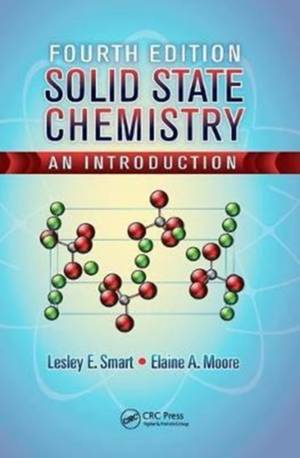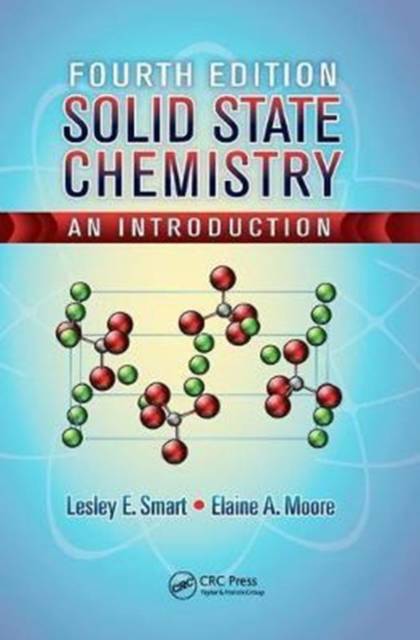
- Afhalen na 1 uur in een winkel met voorraad
- Gratis thuislevering in België vanaf € 30
- Ruim aanbod met 7 miljoen producten
- Afhalen na 1 uur in een winkel met voorraad
- Gratis thuislevering in België vanaf € 30
- Ruim aanbod met 7 miljoen producten
Zoeken
€ 223,95
+ 447 punten
Omschrijving
Building a foundation with a thorough description of crystalline structures, Solid State Chemistry: An Introduction, Fourth Edition presents a wide range of the synthetic and physical techniques used to prepare and characterize solids. Going beyond basic science, the book explains and analyzes modern techniques and areas of research. The book covers: A range of synthetic and physical techniques used to prepare and characterize solids Bonding, superconductivity, and electrochemical, magnetic, optical, and conductive properties STEM, ionic conductivity, nanotubes and related structures such as graphene, metal organic frameworks, and FeAs superconductors Biological systems in synthesis, solid state modeling, and metamaterials This largely nonmathematical introduction to solid state chemistry includes basic crystallography and structure determination, as well as practical examples of applications and modern developments to offer students the opportunity to apply their knowledge in real-life situations and serve them well throughout their degree course. New in the Fourth Edition Coverage of multiferroics, graphene, and iron-based high temperature superconductors, the techniques available with synchrotron radiation, and metal organic frameworks (MOFs) More space devoted to electron microscopy and preparative methods New discussion of conducting polymers in the expanded section on carbon nanoscience
Specificaties
Betrokkenen
- Auteur(s):
- Uitgeverij:
Inhoud
- Taal:
- Engels
Eigenschappen
- Productcode (EAN):
- 9781138435469
- Verschijningsdatum:
- 27/07/2017
- Uitvoering:
- Hardcover
- Formaat:
- Genaaid
- Afmetingen:
- 159 mm x 235 mm
- Gewicht:
- 453 g

Alleen bij Standaard Boekhandel
+ 447 punten op je klantenkaart van Standaard Boekhandel
Beoordelingen
We publiceren alleen reviews die voldoen aan de voorwaarden voor reviews. Bekijk onze voorwaarden voor reviews.











